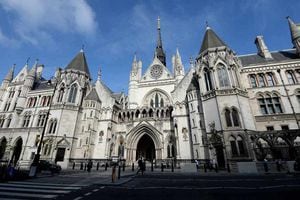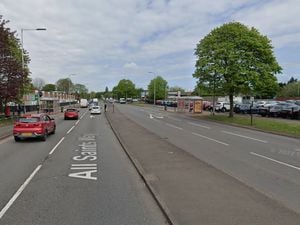Bedroom tax 'unfair', says Black Country grandfather in court victory
A disabled grandfather who took a Black Country council to court over its decision to cut his benefits says he was always confident he would win.

Now retired bus driver Michael Hardy is calling on others who feel that they are being unfairly treated by the bedroom tax to do the same.
A High Court judge ruled in Mr Hardy's favour after his benefits were slashed when Sandwell Council decided that his house was under-occupied.
The 61 year old argued that the council's decision was unfair and pointless given the money that had been spent on the High Court hearing.
The decision comes as the council's deputy leader criticised the legal experts who advised the authority to defend the case.
Steve Eling said the court battle is likely to cost the council tens of thousands of pounds.
Mr Hardy, of Thurston Avenue, Oldbury, was left disabled due to serious heart problems and arthritis.
He lives in a specially adapted house with his wife, who is also disabled.
Under the under occupancy law, which has been dubbed the bedroom tax, the couple had their housing benefit cut by £25 which left them more than £23 a week short on their rent.
They were told that they only needed one bedroom to live in. Mr Hardy felt that the decision was unfair and challenged the ruling at the High Court.
Following his victory, he told the Express & Star: "I was a working bloke, it was only illness that stopped me going to work. It outraged me, I thought 'that's not fair'.
"It is only a box room, not a bedroom. I keep equipment for my heart in there. What was I supposed to do – go and live in a flat?
"I thought I could win, I just thought it was totally unfair.
"Every disabled person is different and every case is different – there should not be a blanket ruling," said Mr Hardy.
"I would encourage anybody else to do the same. You can fight them, you can stand up for your rights and stop taking it lying down.
"People should stand up and ask questions.
"Why have they spent all that money on legal fees for something they didn't have to do? What was the point?" asked Mr Hardy.
High Court judge Mr Justice Phillips ruled that the council's policy discriminated against Mr Hardy because of his disability.
"It is difficult to see any reasonable justification for the council's approach, nor that it was a means of achieving a legitimate aim, let alone a proportionate one," the judge said.
Councillor Steve Eling said he was always on Mr Hardy's side and that the costly result means the council will not contest a similar case in the future.
"My view is that we should have awarded the full amount, but the law said what I thought was wrong. We were told the law is this and that we have to defend it," said Councillor Eling.
"Virtually every other local authority is operating the same way as we are.
"The implications of this is all councils up and down the country will have to reassess these cases.
"I'm not happy with the legal advice, we were clearly told what we had to do by law, then a judge said what we had done was unlawful.
"I'm not a lawyer, when I want to know what the law is I ask a lawyer," said Councillor Eling.





